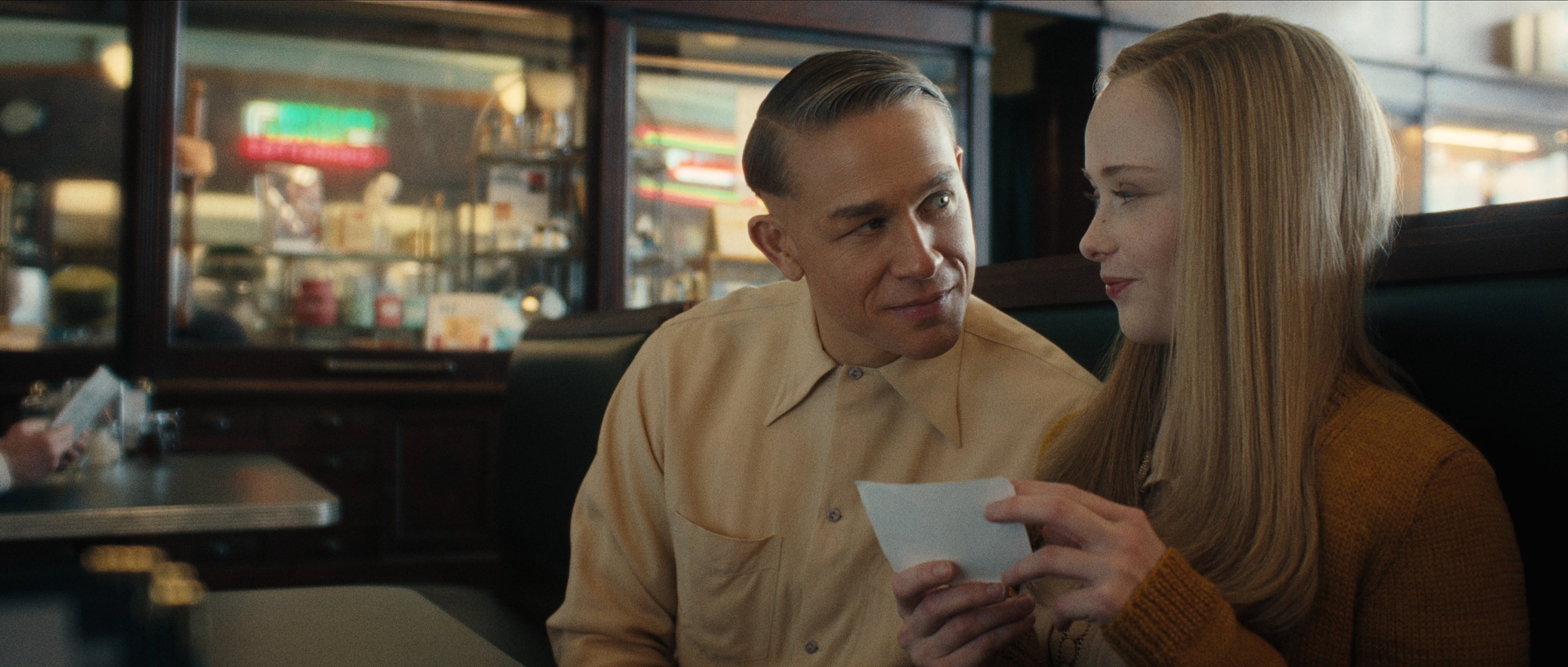Alfred Hitchcock, the legendary British filmmaker, was given the label “the Master of Suspense” in the 1940s, in the wake of hits like Suspicion and Notorious. It would prove an apt moniker in the final third of his career, where his greatest works – Rear Window, Vertigo, Psycho – had a revolutionary impact on cinema. Since then, he has been frequently imitated but never bettered – and, slowly but surely, the culture has moved away from suspense and towards gratification. Enter, then, Ryan Murphy: the master of gratification.
Back in 2011, Murphy was best known to audiences as the creator of acerbic dark comedy Nip/Tuck who had made an unexpected segue into the world of high-school a cappella with Glee. But then he began work on American Horror Story, an anthology show in which a troupe of returning actors tackle different themes from the genre’s canon. Since then, he has given full vent to his icky instincts, the apotheosis of which is his Monster franchise. The first series followed notorious cannibal Jeffrey Dahmer, while the follow-up sparked huge interest in the parricidal Menendez brothers. Now the show returns with Monster: the Ed Gein Story, a detailed look at the life and legacy of Ed Gein (Charlie Hunnam), sometimes called “the Godfather of Serial Killers”. Gein was convicted of just two murders but the grim revelations of the investigation – bowls made from human skulls, masks fashioned from faces, a lampshade rendered from skin – have turned him into the ur-monster.
“Ed Gein didn’t just influence a genre,” Netflix’s press release for Monster reads, “he became the blueprint for modern horror.” And that’s exactly what Murphy’s new series sets out to prove. The eight episodes weave in the production of Psycho, whose killer, Norman Bates, was heavily based on the relationship between Gein and his overbearing, God-fearing mother Augusta (played, here, by Laurie Metcalf), as well as a litany of other descendants, from The Texas Chainsaw Massacre to Mindhunter. This is an ode to the evolution of horror – the way it draws fears from our real lives and turns them into celluloid nightmares – which also exposes how our appetites have changed.
“Only a mother could love you,” Augusta hisses at the young, fragile Ed (Hunnam on mincing, muscular and rather unconvincing form). We later see her decomposing corpse, in various poses around the Gein household, a mirror of the absent Mrs Bates in Psycho. “A boy’s best friend is his mother,” Norman informs Janet Leigh’s shifty runaway, but the thrill of Psycho is in the withholding. What exactly is the shadowy figure glimpsed through the window? Who is the long-haired, knife-wielding murderer? And how does the mysterious matriarch fit into all this? This is the genesis of the film’s suspense, the slow release of tension through its 109-minute runtime.
But times have changed, and Murphy’s oeuvre is entirely devoid of subtlety. In one scene, Hitchcock (played by Tom Hollander) walks a young Anthony Perkins (an uncanny Joe Pollari) around the set of Psycho, explaining the ways that Gein’s murders inspired his new production. He opens an icebox and tells Perkins that it contains “nine preserved vulvas”. The shot lingers on Perkins’ face, the horror of the contents drawn on his expression. We don’t need to actually see the vulvas. But this isn’t a Hitchcock production; this is a Ryan Murphy joint. So, sure enough, the camera cuts to the vulvas. And then back to Perkins. And then back to the vulvas.

There has been plenty of hand wringing about our society’s predilection for gory true crime, an inclination that has metastasised in the internet era. In the 1940s and 50s – when Monster is set and when Psycho was filmed – the public sensibility about serial killers was clearer. They proved terrifying fodder, filling the pages of tabloid rags and pulp magazines. But when it came to depicting these crimes, they were veiled under the cloak of fiction. Robert Bloch, the author of Psycho, which came out in 1959 and was swiftly adapted for the screen, was inspired by Gein only in loose ways (the mother-son relationship, particularly, as well as an interest in shrunken heads). Similarly, Tobe Hoober, creator of The Texas Chainsaw Massacre franchise, drew inspiration from Gein, mainly for his skin-wearing maniac, Leatherface, but relocated the action and renovated the plot.
Horror like Murphy’s bluntly gratifies the basest instincts of the human character
Murphy’s Gein – as with his Dahmer and Menendez brothers – is just plain old Gein. His crimes are his crimes. No possibility for violence goes unindulged. Open questions, like whether Gein murdered his brother, are crudely answered. Unsolved crimes in which Gein was implicated but exonerated – such as the disappearance of 14-year-old babysitter Evelyn Hartley (played here by 24-year-old TikTok star Addison Rae, presumably so she can be tied up in her underwear) are attributed to him. Ilse Koch, the “Kommandeuse of Buchenwald” who perpetrated unspeakable crimes during the Holocaust, appears in psychosexual fantasies played by Vicky Krieps. In the closing moments, an aged, incarcerated Gein is thanked by Charles Manson, Ed Kemper, Jerry Brudos and Richard Speck for being a “role model”. It is like the Avengers, only with murderers of women.
Horror like Murphy’s is increasingly literal. He shows the vulvas. In a way, it is more honest about human nature than the dissonance of Hitchcock, which acknowledges the power of real violence but mutes it with fiction. But it also bluntly gratifies the basest instincts of the human character, prioritising constant thrills over simmering dread. “I think enough people have told my story,” Gein confesses, on his deathbed. “They seem to know it better than me.” After Monster it’s hard to disagree – at least with the first part.
‘Monster: The Ed Gein Story’ is out now on Netflix







